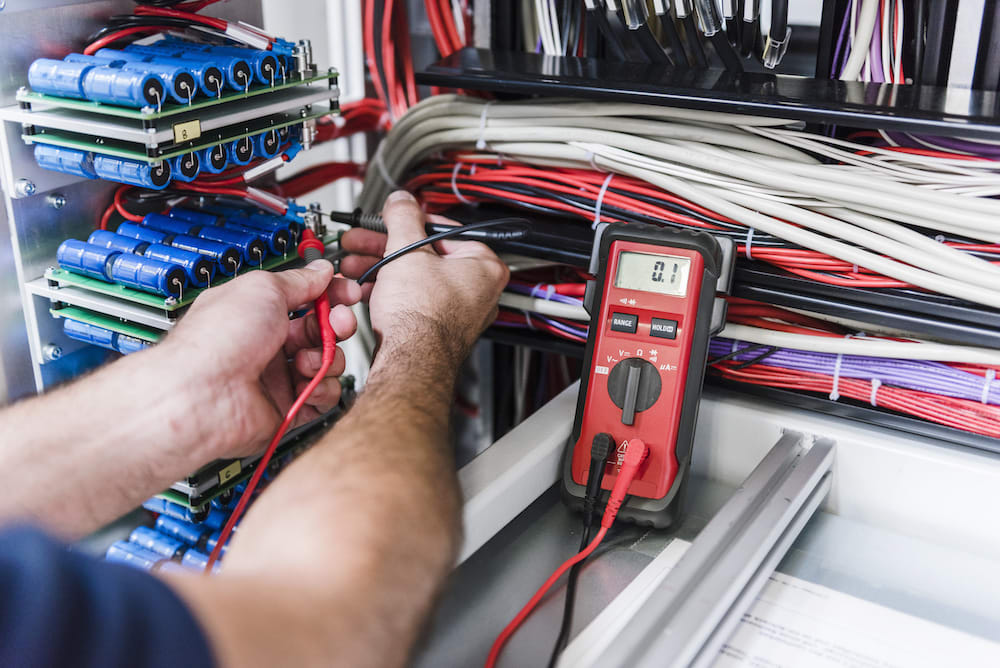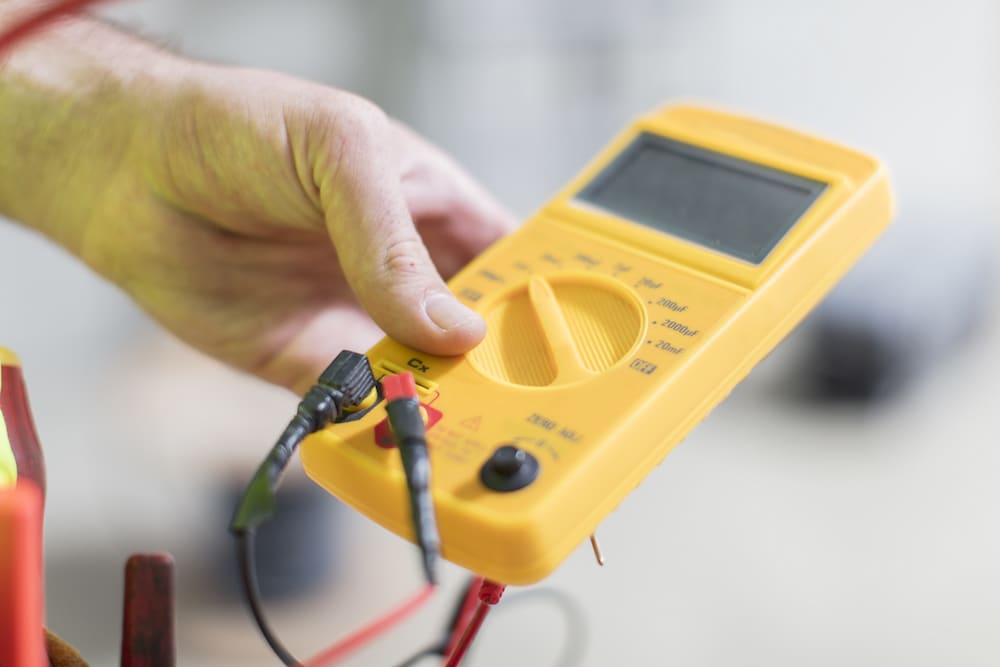- Published Mar 15, 2024
- Last Modified Mar 15, 2024
- 5 min
A Guide to Voltmeters & Its Role in Electrical Safety in the Workplace
Unlock the benefits of using voltmeters to boost electrical safety in the workplace. Learn more today with RS Philippines’ guide.

Electricity is fundamental in workplaces, powering everything from manufacturing to office operations. In 2022, the Philippine’s industrial sector's electricity consumption soared to approximately 28.84 thousand gigawatt hours, while the services sector utilized 24.59 thousand gigawatts as reported by Statista.
Such extensive reliance on electricity highlights the importance of maintaining electrical systems to drive efficient operations across diverse sectors. However, the widespread use of electricity comes with risks.
Notably, electrical injuries are the fourth most common cause of burns, according to a study conducted at the Philippine General Hospital. The study further found that 80.45% of patients with electrical burns sustained their injuries in work-related incidents.
To mitigate these risks, it's essential to implement proper safety measures and use the appropriate tools. Here, voltmeters prove indispensable. These tools can preempt electrical issues by accurately measuring electrical currents, thus contributing to a safer working environment.
In the following sections, we’ll delve deeper into how voltmeters work and their role in maintaining electrical integrity and workplace safety.

What is a Voltmeter?
A voltmeter is an electrical measuring device used to determine the voltage difference between two points in an electrical circuit. To use one, you connect its probes to two points in the electric circuit where you want to measure the voltage.
For instance, voltmeters can track electric motor performance in industrial settings by providing real-time voltage readings. This information helps verify that the machinery operates within specified electrical limits, preventing potential overloads.
Not only do voltmeters assist in prompt electrical troubleshooting, but they also adhere to the guidelines established by the Philippine Electrical Code (PEC), which aims to ensure the safety of individuals and property when using electricity.
Essentially, a voltmeter’s function is to monitor and safeguard electrical systems in workplaces and beyond.
Types of Voltmeters
Learn about the different types of voltmeters and their functions, each tailored for specific voltage-measuring applications and user preferences.
Analog Voltmeters
Analog voltmeters utilize a physical needle that moves across a printed scale to indicate voltage levels. Internally, they often use a coil in magnetic fields for direct current (DC) measurements or rectifiers for alternate current (AC), translating electrical inputs into mechanical movement of the needle, providing a direct, visual measure of voltage changes.
Specific Types of Analog Voltmeters:
- Permanent Magnet Moving Coil (PMMC): Features a coil between permanent magnets. When DC flows through the coil, it interacts with the magnetic field, causing it to rotate and move the needle. It's highly accurate for direct current and voltage measurements due to its stable magnetic field.
- Moving Iron: Operates with a coil and a piece of iron, measuring AC and DC. Current through the coil magnetizes the iron, moving a pointer across a scale via a connected spindle. The pointer's position, directly proportional to the current flow, indicates the voltage level.
- Rectifier Type: This voltmeter uses a rectifier to convert AC, which periodically reverses into steady DC, facilitating AC and DC voltage measurements.
Digital Voltmeters (DVMs)
Digital Voltmeters (DVMs) use advanced electronic components, such as analog-to-digital converters (ADCs), to measure voltage levels accurately. These ADCs convert the analog voltage signals into digital numbers on an LCD screen representing the voltage's magnitude at a specific time.
By leveraging sophisticated electronic circuitry, DVMs ensure highly accurate and reliable voltage measurements, making them indispensable in precision electrical diagnostics and maintenance tasks.
Applications of Voltmeter That Improve Workplace Safety
Voltmeters function by facilitating precise electrical management, enhancing operational efficiency, and reducing risk. Here’s how their uses promote workplace safety:
- Diagnosing Electrical Problems: Voltmeters identify faulty connections and irregular voltage levels by detecting deviations from normal values, which can indicate short circuits or overloads. This early detection helps prevent accidents, reducing the risk of electrical fires.
- Ensuring Safe Power Consumption: Monitors and optimizes power usage, which not only prevents potential overloads but also aids in reducing energy costs. This aligns with the Philippines' Energy Efficiency and Conservation (EEC) initiatives, fostering a culture of sustainable energy use.
- Verifying Circuit Performance: Ensures that all components in an electrical system receive the correct voltage, preventing malfunctions and equipment failure.
- Electrical Installations: Voltmeters ensure electrical wiring connections are correctly established, and voltage levels align with design specifications, preventing wiring errors and reducing safety hazards.
Amplify Your Workplace Electrical Safety Standards

Voltmeters are indispensable in enhancing workplace electrical safety, offering precise diagnostics and prevention of hazards. RS Philippines ensures this safety by supplying top-quality voltmeters from trusted manufacturers alongside a range of essential measuring tools like ammeters to comprehensively address electrical issues.
Choose RS Philippines for trusted electrical safety solutions. Shop our range of voltmeters and more today.
Popular Voltmeter Brands
Schneider Electric
Schneider Electric, a leading energy management and automation company, develops electrical protection and control solutions, including voltmeters, to enhance workplace safety, efficiency, and sustainability.
Murata Power Solutions
Murata Power Solutions, a renowned supplier in the electronics industry, offers cutting-edge power conversion products like voltmeters, which are crucial for ensuring accurate power monitoring and management in various applications.
Related links
- Safety Tips When Using Industrial Heating Elements
- The Role of Magnifying Glasses in Electronics Assembly
- The Importance of Energy Audits for Businesses in the Philippines
- Exploring the World of Industrial Robots for Enhanced Automation
- Ansell Black Latex Electrical Safety Electrical Insulating Gloves...
- Ansell Black Latex Electrical Safety Electrical Insulating Gloves...
- Ansell Black Latex Electrical Safety Electrical Insulating Gloves...
- Ansell Yellow Latex Electrical Safety Electrical Insulating Gloves...